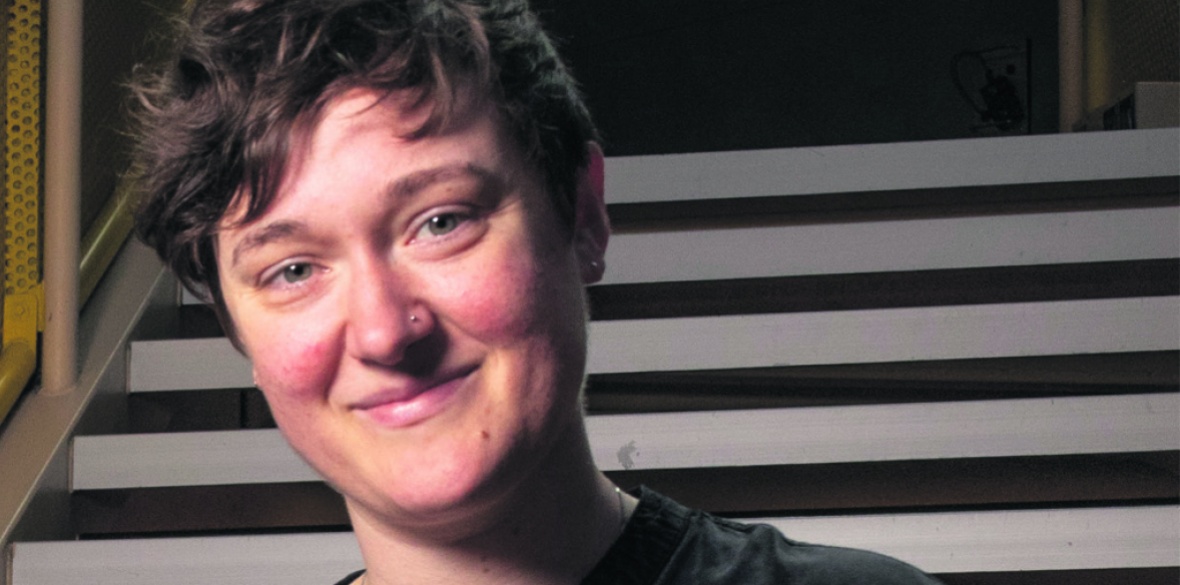This is the last article you can read this month
You can read more article this month
You can read more articles this month
Sorry your limit is up for this month
Reset on:
Please help support the Morning Star by subscribing here
It’s been 200 years since the Peterloo massacre, and its shocking violence continues to reverberate around Manchester and beyond.
Peaceful protesters being attacked and vilified is horribly resonant today, and we don’t have to look too hard or too far to make comparisons. The fight for representation continues, and it’s nowhere near over. As universal credit ties people in knots, food banks are at their highest point of use and the country feels politically more divided than ever, it’s hard not to feel despondent that nothing at all has really progressed in the years since the horror at St Peter’s Field. The working class are still being attacked on all fronts.
It seems to me that narrative is everything. What is the narrative? Who is controlling it? Can we even trust it? It’s so easy to jump at big headlines, get caught up in a Twitter war with legions of keyboard warriors or to inhale lazy stereotypes.
The tonic to this surely has to be community, human connection and true conversation. And now more than ever, I believe this to be the importance and the duty of theatres. For them to become integral to their local audiences, making work that brings people together in a communal experience and offering us the chance to be seen, or to see, with humanity and empathy. The power and simplicity of storytelling. That’s all well and good to say, but if we’re not also getting out of our buildings and into our communities, seeking out those people who don’t necessarily engage with us, we’re at risk of becoming an echo chamber, and of our audiences not being truly representative of our regions.
That is why I’ve been so proud and excited by our new theatre, the Den, which is part of our wider community engagement programme called Local Exchange. It’s a new pop-up theatre designed to travel around the wards and boroughs of Greater Manchester, and take temporary residence in buildings and sites, reimagining them as performance spaces. Currently it’s in its first ever iteration, sitting beautifully in Stalybridge Civic Hall, and is half way through a two-week festival of work, which has been designed for and with the residents of Tameside.
The Yurt-like space is made from wood, canvas and rope, with cardboard seating that concertinas out. It is all made sustainably and requires a collaborative effort in, quite literally, raising the roof. The idea is that after spending a year in a borough and establishing a group of local ambassadors, they signpost us to community groups and help us identify cultural gaps, then working with us to curate a programme that seeks to engage directly with a wide range of local audiences. The Den then takes residence, and becomes a space for which people feel ownership, feel safe to come to and be a part of something, and feel pride in their area and the unique event happening within it.
The Tameside festival is made up of performances by non-professionals including a children’s group, a collaboration with members of Age UK, the Royal Exchange Young Company as well as new work by Manchester-based artists. Poignantly, the Stalybridge Old Band, who in 1819 were at The Peterloo Massacre, marked the exact night of the 200th anniversary by playing a fantastic concert.
We’re also transferring and remaking There is a Light That Never Goes Out: Scenes From The Luddite Rebellion, originally made for our theatre. It thrillingly documents the build up to the 1812 riots that took place in the Royal Exchange itself, just a few years before Peterloo. Dismissing the usual connotations of Luddites being “backwards looking” and “refusing progress,” it instead repositions them as people fighting for their basic working rights, refusing to be brushed aside like cattle, and who bravely campaigned against job losses and mistreatment. Again, it’s not hard to see how resonant this is today.
What’s interesting is how this combination of old stories and new, told by professionals and non-professionals, is bringing people together and allowing us to reflect on our own experiences, whilst offering up a fresh way of seeing things. Like the alternative suggestion that the Luddites were bold campaigners instead of dinosaurs, the children’s company spoke of their enjoyment at putting their “phones down and being wi-fi free for a day.” We’re being given a chance to hear a different narrative, to bust some of our own assumptions and to see what we have in common across generations and years.
We’ve also been working with a local women’s centre, giving them front of house training leading to a bespoke qualification, and they are now running the festival themselves. They’ve spoken of their increased levels of confidence, and of how they feel more visible within their own community. Within the usual mire of the news, this has been a period of optimism and energy, and I’ve seen what happens when you create space for people to speak for themselves and encourage dialogue.
Of course it’s not just theatres that have this duty — in a time where those in power often feel so removed and unrepresented by so many of us, perhaps we have to turn to our communities, to keep engaging and looking out for those who might be more vulnerable, and crucially, to control our own narrative.
Bryony Shanahan is associate artistic director of The Royal Exchange Theatre, Manchester. In November she will become joint artistic director with Roy Alexander Weise.












